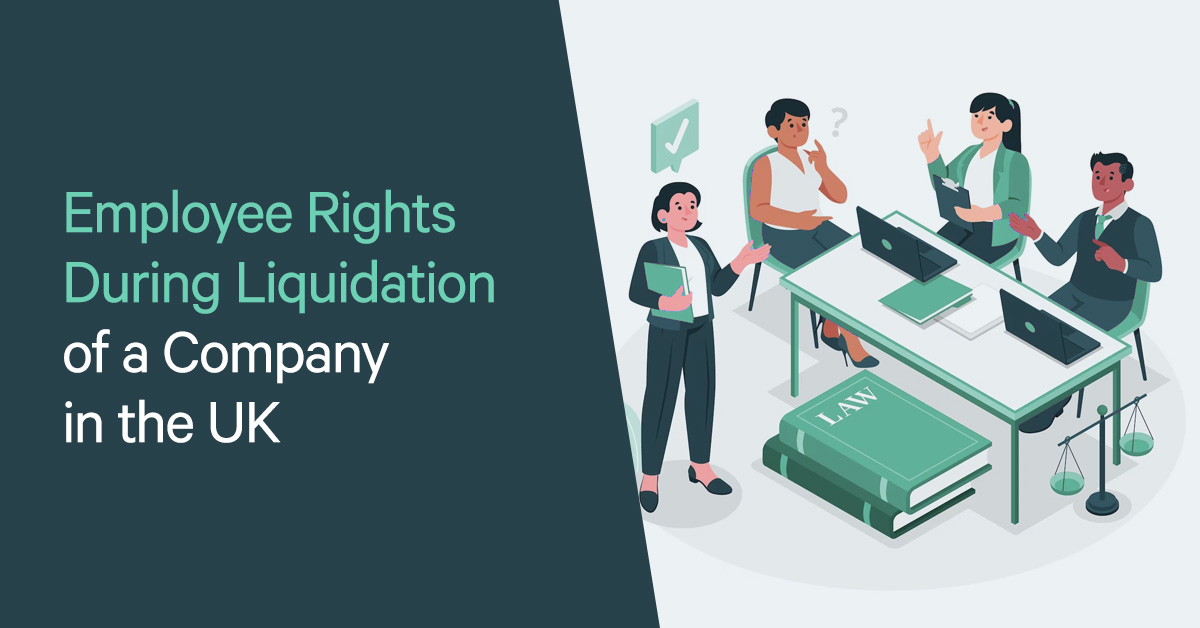If you own a company and you are currently going into liquidation then you are likely worried and confused about the process as a whole and the implications that it has on both you and your employees. It can be quite an anxious time with a large amount of uncertainty left in the future; however, there is a range of different options available to your employees that tend to often get dismissed throughout the process. If you are an employer and are currently going through liquidation then you should be sure to consider some of the below options on what can potentially happen to employees throughout this process and the rights that your employees have as well.
Make Employees Redundant
One of the options that you have, if you are in the process of going through liquidation, is to make your employees redundant. When this happens, the liquidator that you appoint is obliged to reach out to your employees and explain to them exactly how their job is affected and what their next steps can be following the dismissal. Employees will be given a factsheet that they can use whenever they are applying for payments that your organisation owes them. These factsheets are called RP1s and then have a case reference number following them.
Employees also have the option to apply to the government for some redundancy pay when the organisation that they work for goes into liquidation. Redundancy pay consists of any holiday pay which might be owed, as well as unpaid wages, overtime, commission and other money which has been earned by the individual whilst carrying out their duties for their employers.
Finally, employees also have the ability to claim compensation if they feel like their dismissal has in some way been unfair. If an employee wants to make this claim then they are able to go to the tribunal service. This can only be done if the circumstances leading up to the employee’s dismissal were unfair or if there wasn’t any kind of proper consultation carried out concerning the redundancy.
Ask to Continue to Work
If your business does not intend on fully closing down and instead is looking to either restructure, sell or save the business, then you could ask your employees to continue working in the interim. If, at a later date, the business closes, then employees will still be entitled to all of the same rights that they were previously entitled to, like redundancy pay.
The same applies to the business if it is being sold, as the employment rights remain the same and are not affected. That being said, if the business is sold on then employees lose the right to be able to claim for the likes of holiday pay, unpaid wages, various bonuses and commission that they might have earned operating under your business prior to it being sold.
Transfer Them to a Different Company
There is always the option to look to transfer employees to a different employer. There are a few different situations where this might be necessary, for instance, if the business being liquidated is the subsidiary of a larger business, or if the organisation is being sold. If this happens, employees are unable to apply to the government for any money if they were transferred before the liquidation goes ahead.
If the transfer happens after the business has gone into liquidation then employees could well be entitled to redundancy pay, statutory notice pay and also any payments they are owed which are currently outstanding from their employees. These outstanding payments will again include the likes of wages which are yet to be paid, holiday pay, bonuses and commissions.
How Much Are Employees Likely to Receive?
When an employee is claiming money as a result of a business closing down, the National Insurance Fund is in place which allows them to apply for several different payments. The fund guarantees basic payments that will cover a few different costs and usually, about 80% of all payment claims are settled within three to six weeks.
The amount of money that employees can expect to receive from the National Insurance Fund varies depending on several different factors. These include the likes of how long the individual was employed for, the terms laid out within their employment contract and the age of the employee. Payments made by the National Insurance Fund are capped, which means that employees may well not receive the full amount that they are owed. They can claim for the following:
- Unpaid Wages
Employees can apply for unpaid wages that might be owed to them. Wages include overtime that they’ve worked as well as bonuses and commission earned. The only payments that employees are entitled to are those which are outlined within their employment contract, employees are also only entitled to receive up to eight weeks of money owed to them.
- Statutory Notice Pay
Employees are generally entitled to statutory notice pay when they are made redundant, even if statutory notice pay isn’t highlighted within their contract of employment. Employees are able to claim if they did not work a notice period, if they worked for part of a notice period and if they worked an unpaid notice period.
- Holiday Pay
Employees can also claim some of their holiday pay if it pertains to holidays not taken prior to their dismissal. Employees can also apply for holiday days which were taken but they were not paid for.
Do You Help with Liquidation?
If your business is going through liquidation at the moment then you likely have a number of different questions that you would like to ask. If this is the case then be sure to reach out to experts such as Leading UK. Our team of professionals will happily sit down with you to discuss your situation and answer any and all questions that you may have. If you require any further information then do not hesitate to get in touch.






